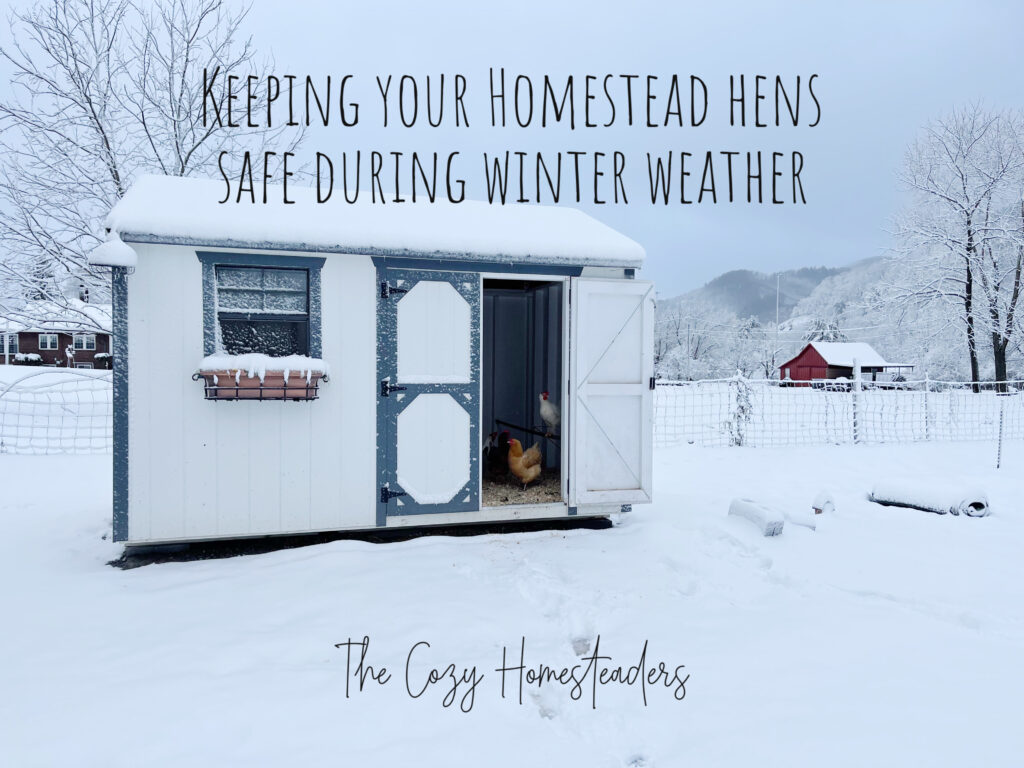
When we woke up today the homestead was covered in 4 inches of snow! It was the first snow since we moved to Tennessee. It looked like a winter wonderland, but then it occurred to me, “Are our chickens safe in the snow?” We have been raising hens for eggs now for 8 years but never had to worry about extreme winter weather (the joys of when we were living on the central coast of California). It was funny to see their reaction to snow on the ground. It also made me think, “Do chickens even like the snow?” I also wondered if there were any special precautions we should take to keep our chickens safe and warm during a winter snow storm.
This post contains affiliate links, which means I make a small commission at no extra cost to you. See my full disclosure here.
What our chickens did when they first saw snow and did they like it?
Our hens free range all day on our property (and sometimes on our neighbors property as well). They typically bolt out of the coop before I even have the door completely open. That wasn’t the case today. They all stopped at the edge of the coop door and starred at the fluffy white snow on the ground. The majority of them stayed tucked inside of the coop nearly all day. A few brave girls did venture out for a little while but all in all I would have to say I don’t think they liked the snow nearly as much as we did.
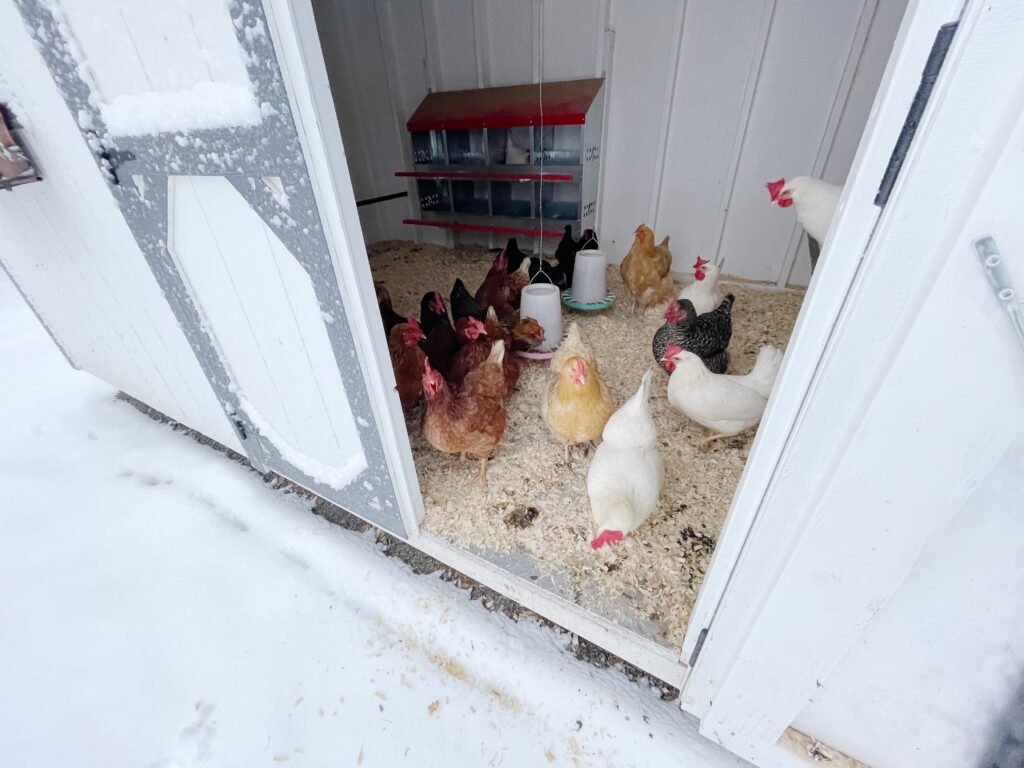
Keeping our chickens safe during a winter snow storm.
Here are some very basic steps I took to prepare our coop for the winter storm
- Clean the coop
First thing, I cleaned the coop a couple of days before the storm. I typically like to completely clean out our coop once a month with a “tidy up” halfway between those cleanings. This is so important no matter what the weather looks like. A clean coop is vital to the health of your hens especially if they are going to be spending the whole day inside it.
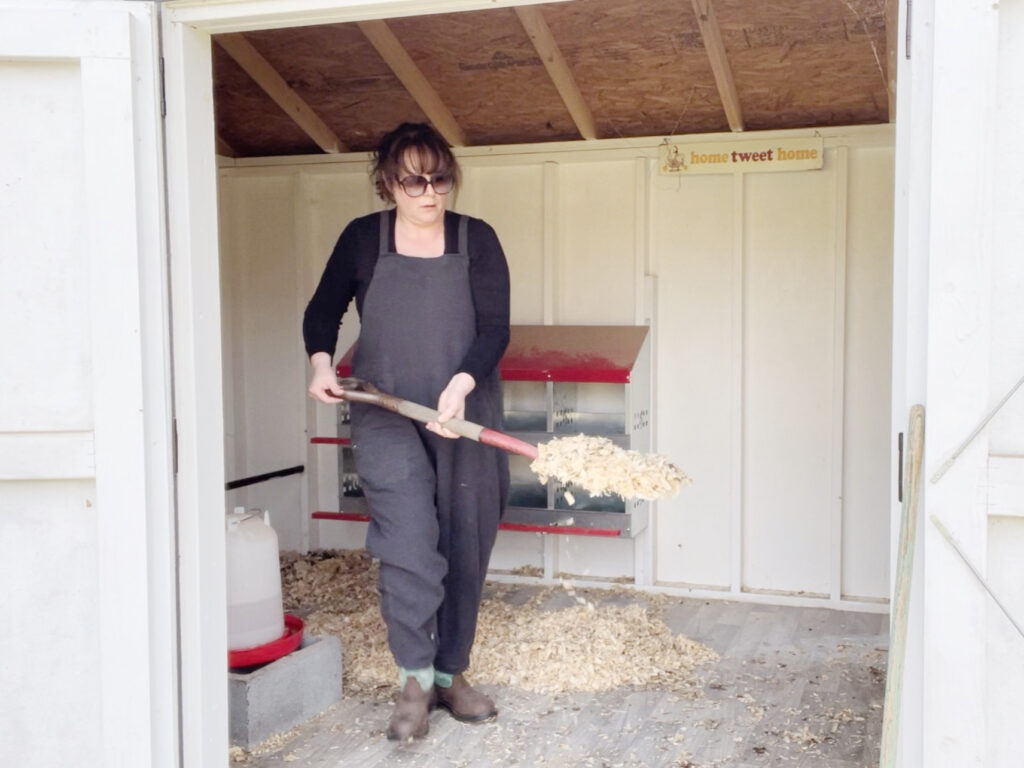
- Fill up the water and feed dishes
This is a regular chore anyway but I made sure the water and food dishes were full so I didn’t have to worry about it the day of the storm.
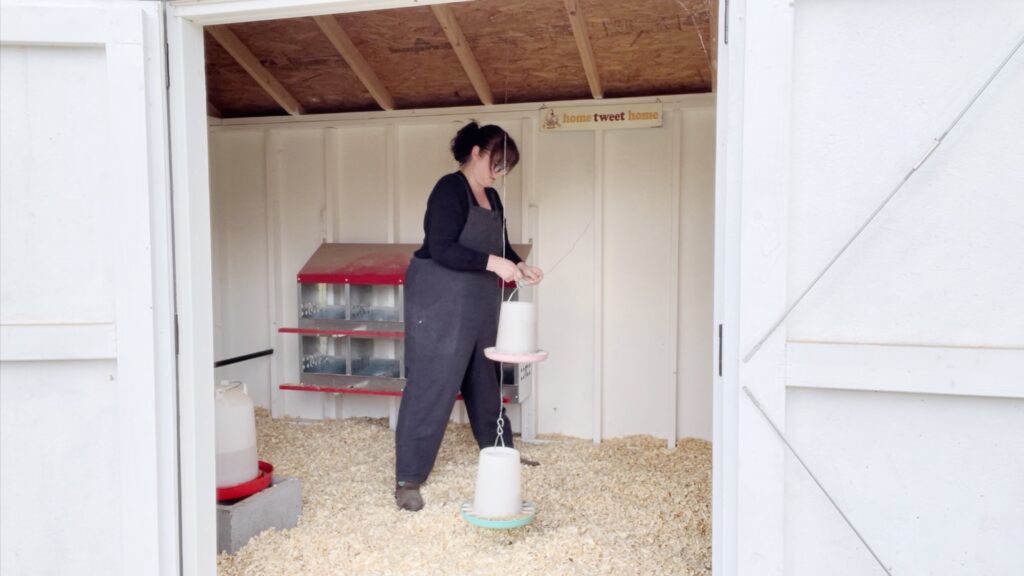
- Make sure there is plenty of ventilation
We usually leave the one small window in the coop open for ventilation at all times. It was tempting to close it to make it more warm for them but after researching we discovered this can be a big mistake. So we not only left the small window open, we also opened one of the coop doors mid morning. This way they had the choice to stay in the coop or hop out into the snow. Most of them stayed inside the coop the whole day although a few were brave, but there was still plenty of fresh air for them.
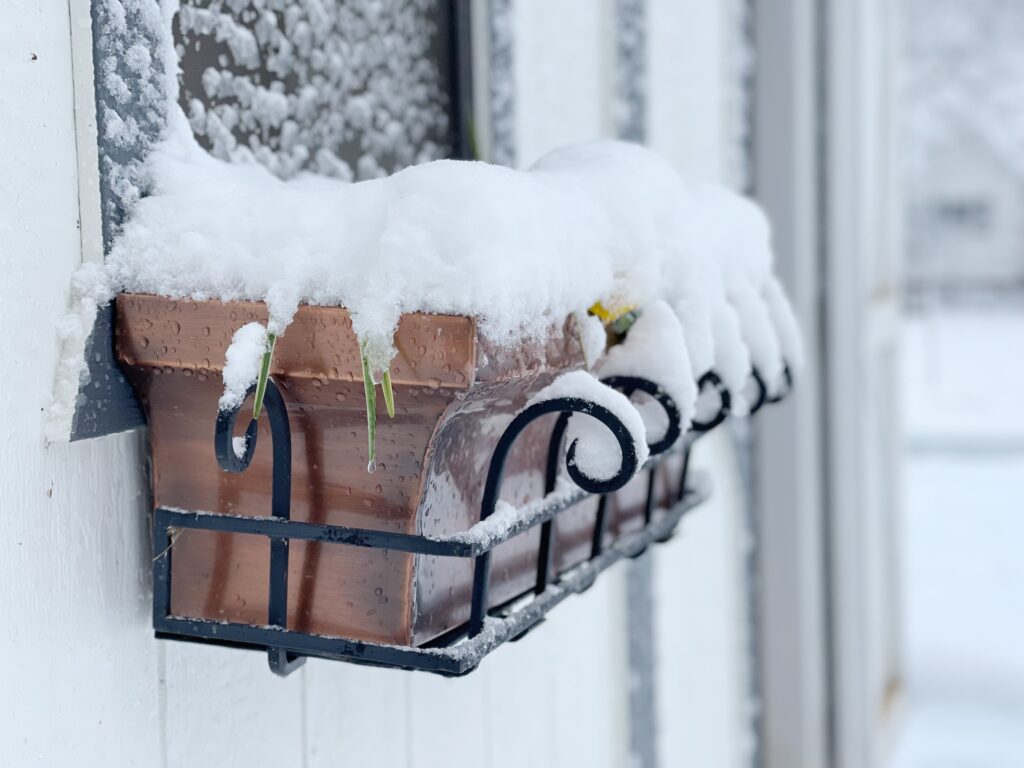
- Provide some extra entertainment
When I was researching what to do to prepare our flock for the snow I found several articles that mentioned providing extra entertainment for them since they would likely be spending the majority of the day inside their coop. The most popular method I found was to hang an head of cabbage in the coop for them to be able to peck at. It totally worked, they loved it. I also sprinkled their daily treats of cracked corn inside the coop for them to scratch around at.
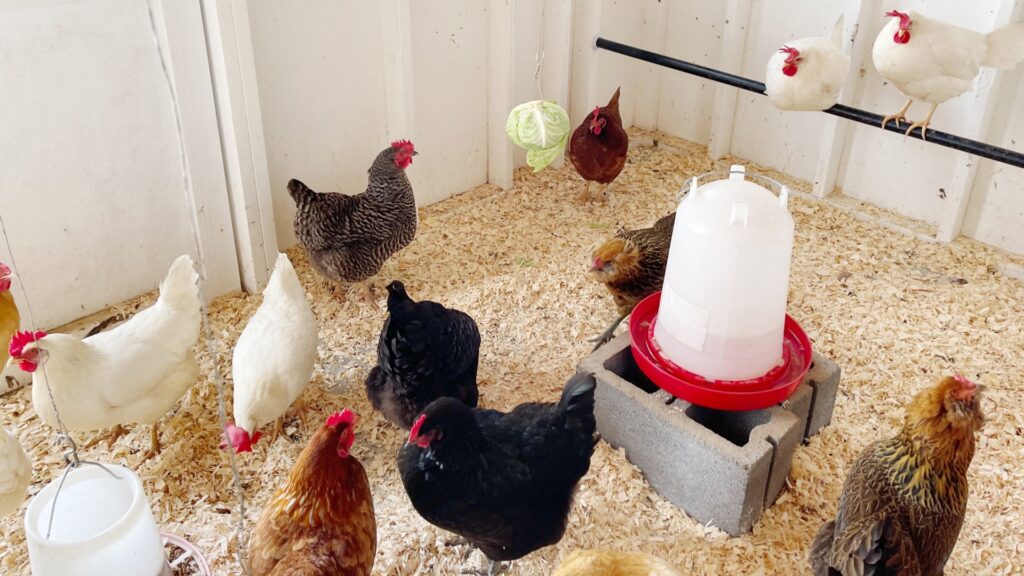
Some other tidbits to consider when thinking about your hens safety during winter weather:
- There are some chicken breeds that are considered to be “cold-hardy”, so if you live in an area with severe low temperatures in the winter you will want to choose one of those. Some examples include the Barred Plymouth Rock, Black Jersey Giant, Buff Orpington, and Rhode Island Red just to name a few.
- To prevent frostbite on combs and wattles you can apply petroleum jelly. This will not treat frostbite but may prevent it.
- Make sure their water dishes aren’t frozen over.
- Provide extra cracked corn treats that are high in calories to help your chickens stay warm.
- If some of your hens lay their eggs on the floor of the coop (I have 2 of these) and they are staying inside most of the day, make sure you are collecting the eggs more frequently to prevent them from getting cracked or broken.
- If they aren’t able to forage outside on the ground for long periods of time you will want to supplement with some grit to help with their digestion.
Thanks so much for reading. I hope you found this post informative and helpful.
Thanks for stopping by our Homestead. Stay Cozy.


Leave a Reply